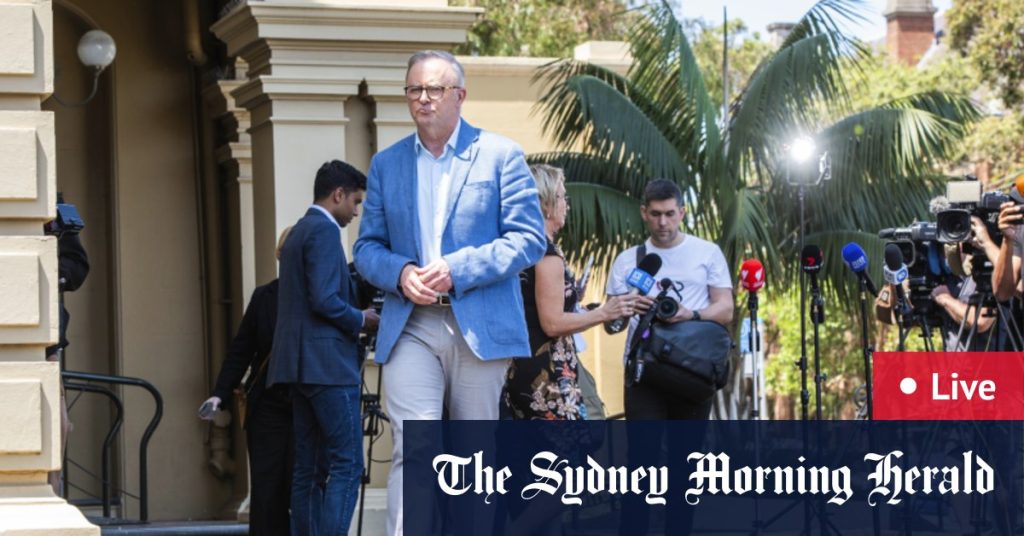Employment Minister Murray Watt has recently come under fire for his membership in Qantas’ Chairman’s Lounge, while also defending reports that Prime Minister Anthony Albanese solicited flight upgrades when he was a transport minister and opposition leader. Speaking on ABC’s RN Breakfast, Watt refused to comment on the claims made by a journalist about Albanese’s actions, warning the opposition to be cautious about attacking the issue. Watt also pointed out that other politicians, such as Peter Dutton, have received upgrades and free flights from Qantas and other airlines, raising questions about the influence of large corporations on political decisions.
Watt confirmed that he is a member of the Chairman’s Lounge, stating that almost all federal politicians are members due to the amount of time they spend traveling. He justified his membership by explaining that he frequently holds private meetings and team meetings with his office while traveling, and the exclusive lounge provides a suitable environment for these discussions. Watt also defended the government’s record on Qantas, claiming that Labor has taken on the airline on several occasions in both opposition and government. He highlighted that when Albanese was Transport Minister during the Rudd Gillard Government, he opposed the grounding of the Qantas fleet, while the Liberals and Nationals sided with Qantas during the collapse of Virgin.
The issue of politicians receiving perks from airlines and corporations has been brought into the spotlight following Watt’s comments and the reports about Albanese soliciting flight upgrades. Watt’s defense of his membership in the Chairman’s Lounge and the government’s record on dealing with airlines raises questions about the influence of corporate entities on political decisions and the potential conflicts of interest that may arise. The opposition has been warned by Watt to consider their own interactions with corporations and not to hastily criticize others for similar actions. The debate surrounding politicians’ relationships with corporations and the perks they receive is likely to continue as more information comes to light.
The controversy surrounding Watt’s membership in the Chairman’s Lounge has led to a broader discussion about the relationship between politicians, corporations, and the perks they receive. The issue of conflicts of interest and the influence of corporate entities on political decisions is a significant concern, and the recent reports about Albanese soliciting flight upgrades have further fueled the debate. Watt’s comments defending his membership and criticizing the opposition for seizing on the issue have opened up a dialogue about transparency and accountability in political relationships with corporations. It remains to be seen how this controversy will impact public perception of politicians and their interactions with corporate entities.
The debate over politicians receiving perks from corporations like airlines has raised questions about the integrity of political decision-making and the potential conflicts of interest that can arise. Watt’s justification for his membership in the Chairman’s Lounge and his defense of the government’s record on dealing with airlines has sparked discussions about the influence of corporate entities on political decisions. The warnings issued by Watt to the opposition to reconsider their criticism of politicians’ interactions with corporations highlight the complex nature of these relationships and the need for greater transparency and accountability. As the debate continues, it is likely that more scrutiny will be placed on the interactions between politicians and corporations, and the potential impact on policy decisions.
The controversy surrounding Watt’s membership in the Chairman’s Lounge and the reports about Albanese soliciting flight upgrades have shone a spotlight on the relationship between politicians and corporations. The debate over conflicts of interest and the influence of corporate entities on political decisions is an ongoing concern, and the recent events have brought these issues to the forefront. The warnings issued by Watt to the opposition to be cautious in their criticisms of politicians’ interactions with corporations underscore the need for greater transparency and accountability in these relationships. Moving forward, it will be important for politicians to ensure that their interactions with corporations are ethical and do not compromise their ability to make decisions in the best interests of the public.


